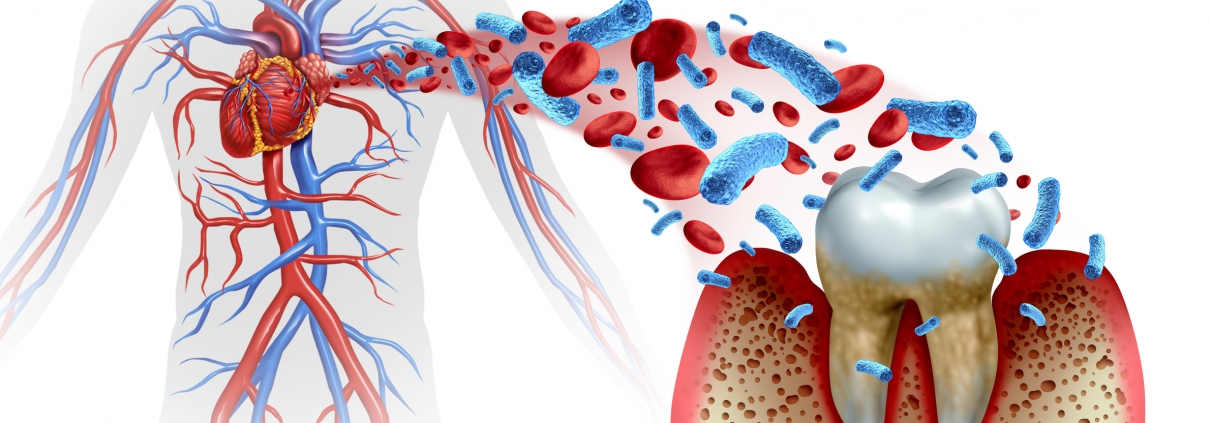The Connection Between Heart Disease and Oral Health
The interplay between oral health and overall systemic health has become a crucial area of study in recent years. Among the most significant connections is the relationship between oral health and heart disease. Evidence suggests that poor oral health, particularly periodontal disease, can increase the risk of cardiovascular problems. This article explores the connection between oral health and heart disease, the underlying mechanisms, and the importance of maintaining good oral hygiene for cardiovascular well-being.
Understanding Oral Health
Oral health refers to the health of the teeth, gums, and entire oral-facial system, which enables functions such as smiling, speaking, and chewing. Key components of oral health include:
Dental Caries (Tooth Decay): Caused by the buildup of plaque, a sticky film of bacteria that produces acids eroding tooth enamel.
Periodontal Disease (Gum Disease): Inflammation and infection of the gums, which can progress from gingivitis (mild) to periodontitis (severe).
Maintaining good oral hygiene involves regular brushing, flossing, dental check-ups, and a balanced diet.
The Link Between Oral Health and Heart Disease
Inflammation and Infection
The primary connection between oral health and heart disease involves the role of inflammation and infection:
Periodontitis and Systemic Inflammation: Periodontitis, a severe form of gum disease, causes chronic inflammation in the mouth. This inflammation can release inflammatory markers into the bloodstream, contributing to systemic inflammation. Chronic inflammation is a known risk factor for atherosclerosis, the buildup of fatty deposits in the arteries, which can lead to heart disease.
Bacterial Infection: Bacteria from periodontal disease can enter the bloodstream through the gums. Once in the bloodstream, these bacteria can attach to fatty deposits in the coronary arteries, contributing to clot formation. This can lead to heart attacks or strokes.
Shared Risk Factors
Oral health and heart disease share several common risk factors, including:
Smoking: Increases the risk of both gum disease and heart disease.
Diabetes: Poorly controlled diabetes is a risk factor for both periodontitis and cardiovascular disease.
Poor Diet: Diets high in sugar and unhealthy fats contribute to both tooth decay and heart disease.
Mechanisms Connecting Oral Health to Heart Disease
Several mechanisms explain how poor oral health can lead to heart disease:
Inflammation Pathway
The inflammation pathway is one of the most studied mechanisms. Inflammation in the gums releases cytokines and other inflammatory markers into the bloodstream. These markers can:
Promote the formation of atherosclerotic plaques.
Cause existing plaques to become unstable and rupture, leading to heart attacks.
Direct Bacterial Effects
Bacteria from the mouth can enter the bloodstream and directly affect the cardiovascular system. For example:
Endotoxins: Bacteria produce endotoxins that can trigger an immune response, leading to further inflammation.
Platelet Aggregation: Certain oral bacteria can induce platelet aggregation, contributing to clot formation.
Immune Response
The body’s immune response to oral bacteria can also affect the cardiovascular system:
Autoimmune Responses: Chronic periodontal infections can induce autoimmune responses, where the body attacks its own tissues, potentially damaging the cardiovascular system.
Evidence Supporting the Connection
Several studies have established a strong association between oral health and heart disease:
Epidemiological Studies: Large population-based studies have found that individuals with periodontitis have a higher risk of developing cardiovascular disease.
Clinical Trials: Some clinical trials suggest that treating periodontal disease can reduce markers of systemic inflammation and improve endothelial function, which is crucial for maintaining vascular health.
Animal Studies: Research on animals has demonstrated that oral bacteria can induce atherosclerosis, providing further evidence of the causal relationship between oral health and heart disease.
Importance of Maintaining Good Oral Health
Given the strong connection between oral health and heart disease, maintaining good oral hygiene is crucial for overall health:
Regular Oral Hygiene Practices
Brushing and Flossing: Brush at least twice a day and floss daily to remove plaque and prevent gum disease.
Dental Check-Ups: Regular dental visits for professional cleaning and check-ups can help detect and treat oral health issues early.
Healthy Lifestyle Choices
Quit Smoking: Smoking cessation reduces the risk of both gum disease and heart disease.
Healthy Diet: A balanced diet low in sugar and rich in nutrients supports both oral and cardiovascular health.
Managing Systemic Health
Control Diabetes: Proper management of diabetes can reduce the risk of periodontal disease and cardiovascular complications.
Monitor Heart Health: Regular check-ups with a healthcare provider to monitor heart health and manage risk factors like high blood pressure and cholesterol.
Conclusion
The connection between oral health and heart disease highlights the importance of a holistic approach to health care. Good oral hygiene not only preserves teeth and gums but also contributes to overall cardiovascular health. Understanding and addressing the shared risk factors and mechanisms linking oral health to heart disease can lead to better health outcomes and improved quality of life. By maintaining regular oral hygiene practices and making healthy lifestyle choices, individuals can significantly reduce their risk of developing both oral and cardiovascular diseases.

